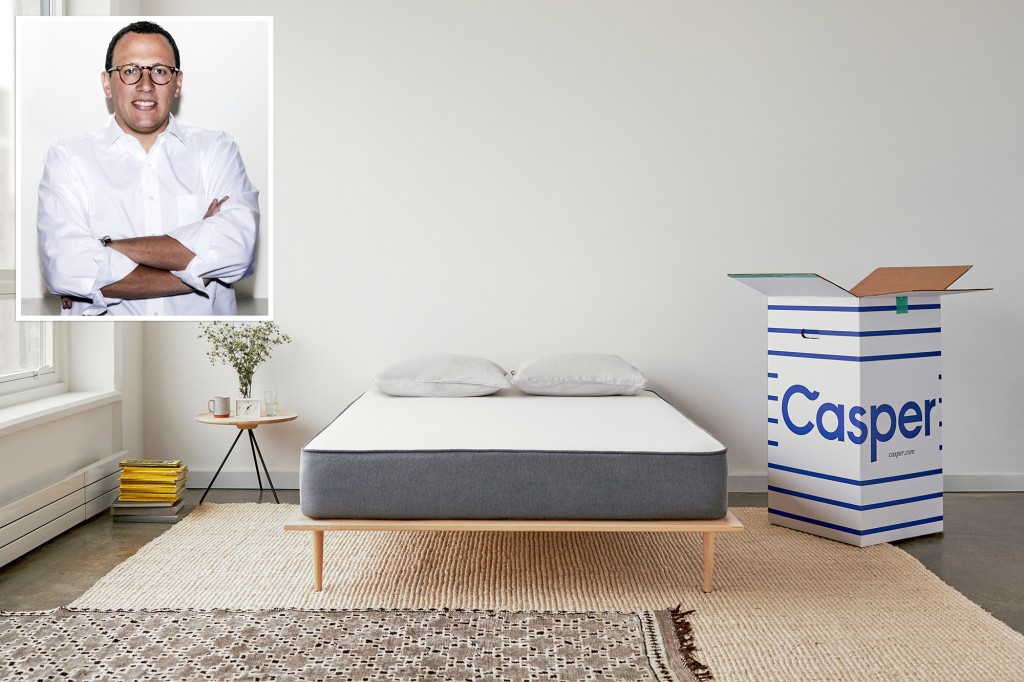Struggling mattress maker Casper Sleep is being taken private — at less than half the price it commanded when it went public less than two years ago.
The bed-in-a-box company said Monday it reached an agreement to be acquired by Durational Capital Management — a buyout firm which also owns the Bojangles fried-chicken chain — for $6.90 a share, or $286 million.
The takeout price was a 94 percent premium to Casper’s closing price on Friday. The company’s shares on Monday were recently up 88 percent at $6.65.
Nevertheless, it’s a steep discount to the $1.1 billion valuation Casper had won in a private fundraising in 2019. It’s also sorely short of the $575 million valuation Casper got when its shares first started trading at $13.50 in February 2020 in an IPO that raised $100 million.
Casper — a hipster brand known in New York City for its clever subway ads — had been at the forefront of the bed-in-box trend. The company had attracted celebrity investors, including actor Ashton Kutcher and Leonardo DiCaprio.


Still, it faced increasing competition from dozens of start-ups, and widespread skepticism about its IPO. In June 2020, Casper was slapped with a shareholder lawsuit alleging that Casper hid the fact that the company’s profit margins were narrowing and that it was selling a “glut of old and outdated mattress inventory” at clearance prices, according to the complaint.
Founder and chief executive Philip Krim — who got his start selling mattresses from his dorm room while he was a college student at the University of Texas — also said he will step down as CEO effective immediately. The seven year-old company’s president, Emilie Arel, was named CEO.


“In consultation with outside advisors, Casper’s Board of Directors evaluated a range of strategic and financial alternatives over several months and determined, after careful consideration, that the transaction proposed by Durational is superior to all other alternatives available,” Krim said in a statement.
In recent years, Casper has partnered with a number of retailers, including Target, to sell its mattresses. It also has expanded its products beyond mattresses to include bed linens, bed frames and dog beds.
On Monday, the company reported that sales had increased 27 percent to $156 million in the quarter ended Sept. 30 but that its net loss widened to $25 million from $16 million from a year ago.

